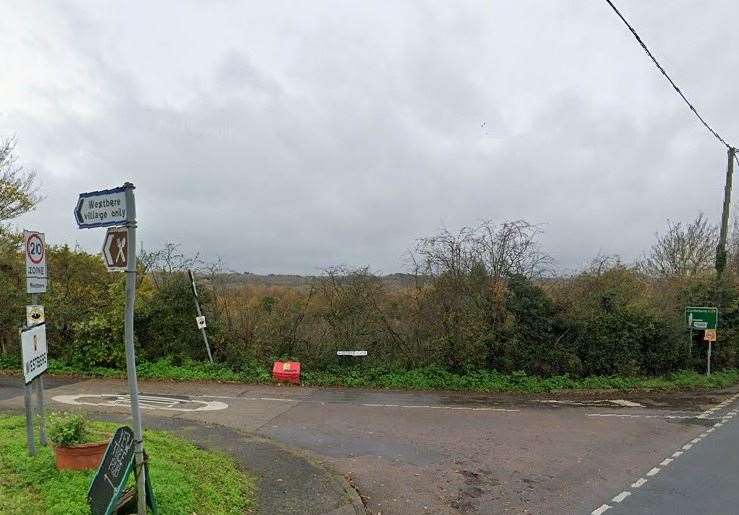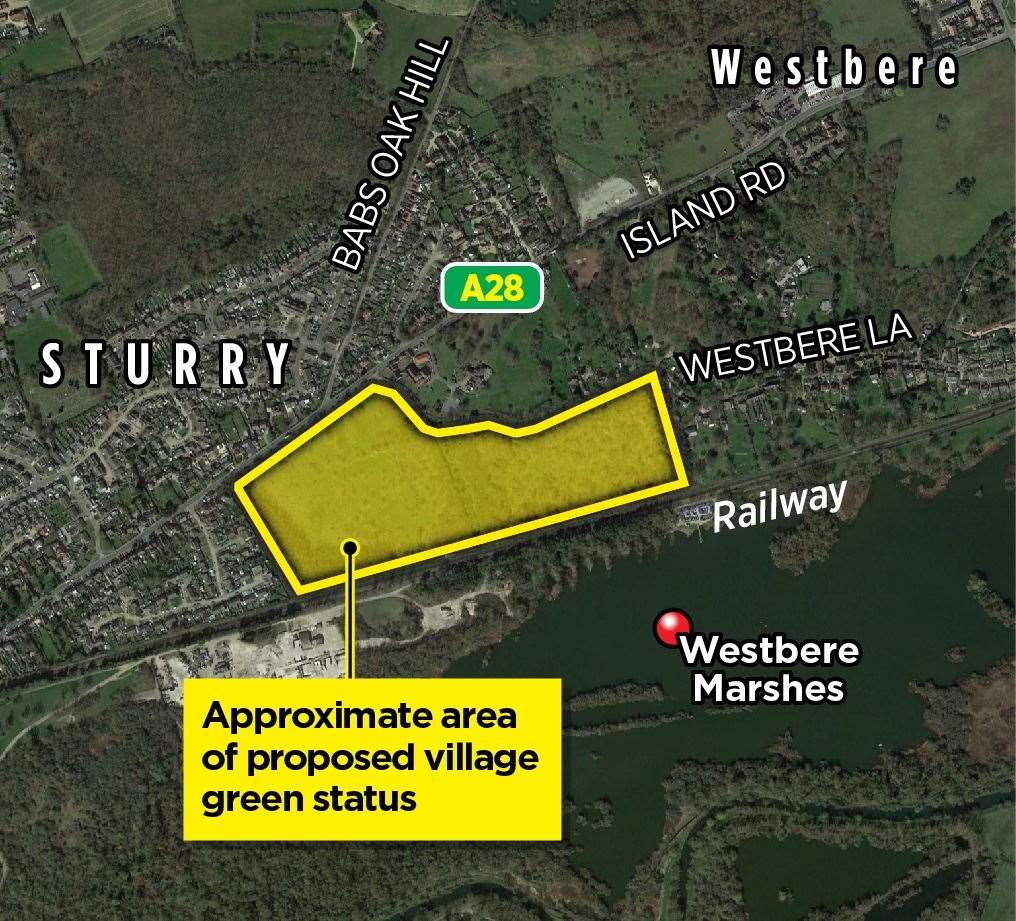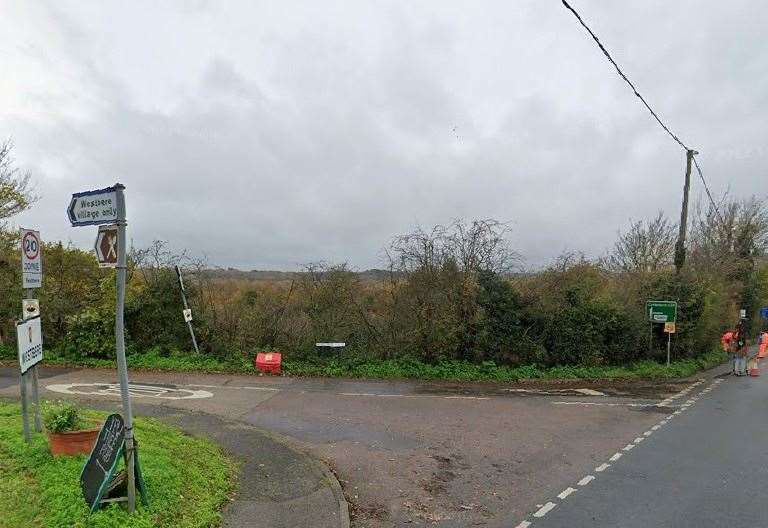Attempts to save land under threat from house-building have suffered a major setback.
An inspector concluded land at Westbere, near Canterbury, does not qualify for “village green” status following a campaign by the Two Fields Action Group.

A chunk of the 37-acre site on the border between Westbere and Sturry parishes is owned by developer Bellway Homes Ltd as well as three other landowners.
Under the Commons Act 2006, to qualify to be a village green, the applicant must show the land was in public use for leisure such as blackberry picking or kite-flying for 20 years.
Bellway Homes and another landowner lodged objections to the application, claiming the numbers using the site were too small and were more akin to those using it as a right of way. They also contended signs were erected prohibiting access.
Westbere Green Space Protection Ltd, which owns one of five strips at the site, supported the application, which was rejected by Kent County Council’s regulation committee on Tuesday.
The authority is responsible for deciding village green status matters and officers recommended councillors should throw out the proposals in a report ahead of the meeting.
Village green status would have protected the land against any future development and a bid was launched in 2019.

Committee member Cllr Lottie Parfitt-Reid (Con, Maidstone) said: “The bar for achieving village green status is very high and I feel confident we made the right call on this one.”
In 2022, developers lost a challenge in the High Court to throw out the application after arguing a local plan policy proposes “positive encouragement of development”.
But the judge rejected Bellway’s claims allowing the village green application process to continue.
A three-day inquiry last June heard that “Private Property” signs had been put up and fencing fitted inside the 1999-2019 time frame.
The inspector noted there was limited scope for entering the heavily vegetated area for past times, thus confining activities to the main path.
Council papers summarising the findings of the inspector’s public inquiry stated: “Such use (for the reasons discussed above) was not a qualifying user for the purposes of the Village Green application and therefore, discounting use of the main paths, there was very little other evidence of use. As the Inspector put it: ‘off path use was the relatively rare exception’.”
The inspector’s report says there was no evidence of use meaning that a “reasonable landowner” would have “considered there was any general user of the whole of the land” for lawful sports and past times during the statutory period and that use was “attributable to the use of the defined paths”.
The case’s accountable officer for KCC Graham Rusling recommended the village green application be turned down.
KCC’s conclusion states: “In this case, although it is clear that there has been recreational use of the land by the local residents over a considerable period, it would appear that the nature of that use has been more akin to a ‘public rights of way’ type of use, rather than the community as a whole exercising a general right to recreate over a wider area (as would be the case for a village green).
“The inspector – who had the benefit of hearing first-hand the evidence of the witnesses at the public inquiry – is clear that the application site (either in part or as a whole) does not meet the relevant legal tests for registration as a village green.”
Applicants can seek a judicial review at the High Court to appeal the decision, committee members were warned.




